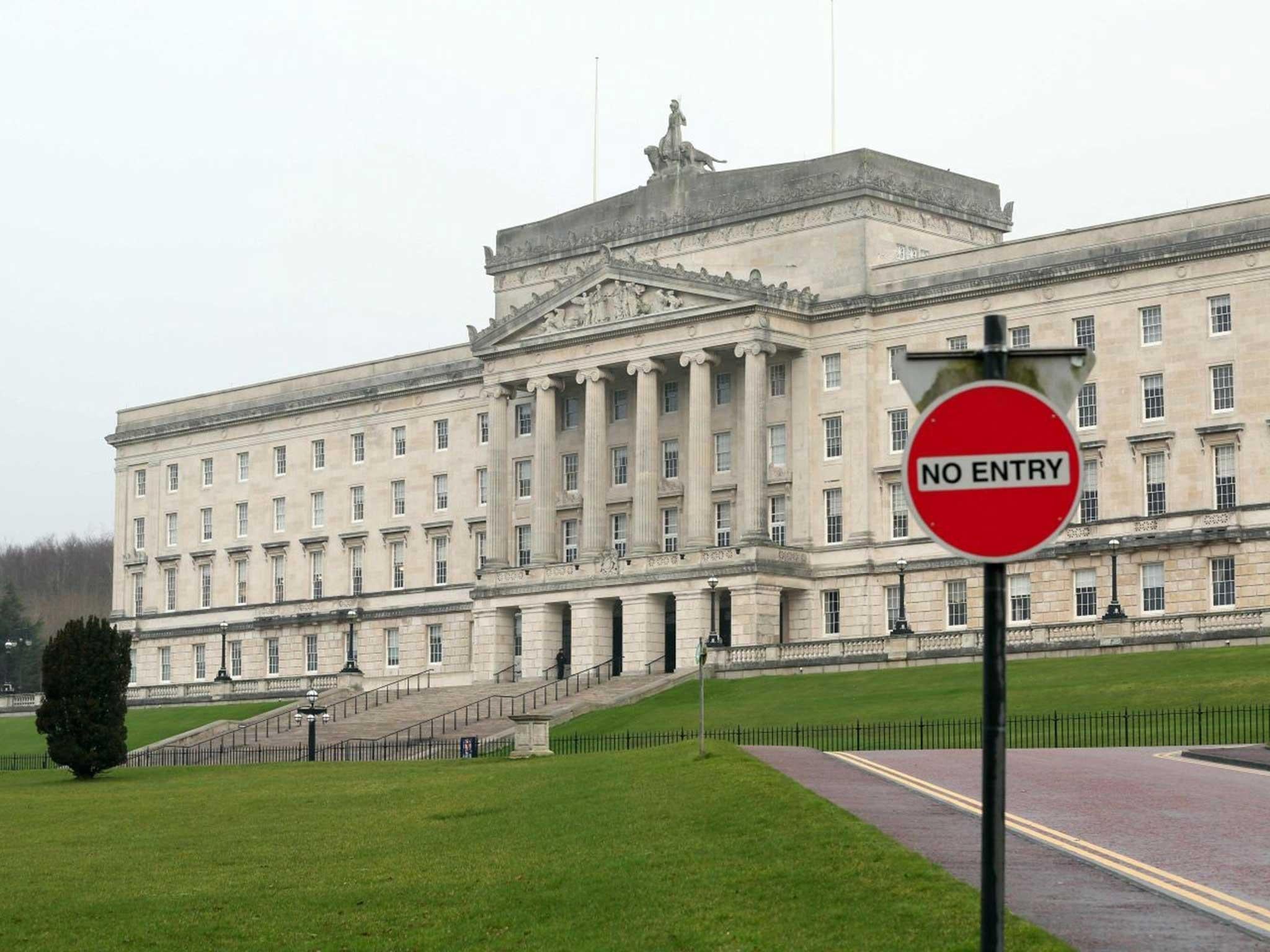The general election could leave Northern Ireland without any government
While the House of Commons is dissolved on 4 May, legislation for power-sharing collapse has no provisions for both the central and devolved governments being down at the same time


Your support helps us to tell the story
From reproductive rights to climate change to Big Tech, The Independent is on the ground when the story is developing. Whether it's investigating the financials of Elon Musk's pro-Trump PAC or producing our latest documentary, 'The A Word', which shines a light on the American women fighting for reproductive rights, we know how important it is to parse out the facts from the messaging.
At such a critical moment in US history, we need reporters on the ground. Your donation allows us to keep sending journalists to speak to both sides of the story.
The Independent is trusted by Americans across the entire political spectrum. And unlike many other quality news outlets, we choose not to lock Americans out of our reporting and analysis with paywalls. We believe quality journalism should be available to everyone, paid for by those who can afford it.
Your support makes all the difference.The decision to call an election so soon after May 2015 appears to be borne of the Prime Minister’s insecurity about having no electoral mandate. In holding the election now, she can capitalise on Labour’s disarray under an incompetent leader, as well as a lacklustre Ukip.
However, while the timing is well sized calculation for the Conservatives, it could scarcely be worse for Northern Irish politics. Northern Ireland is currently engulfed in one of its most precarious crises since peace was established and the side show of a general election makes the prospects of resolve even slimmer.
The region remains without a government, almost five months after Sinn Féin pulled out of power-sharing with their counterparts in the Democratic Unionist Party. The Conservatives, who have long taken their eye off the ball in Northern Ireland, appeared surprised by the sudden collapse of power-sharing.
A snap election was called in Northern Ireland in a bid to elect a new government willing to return to power-sharing but Sinn Féin and the Democratic Unionists were returned as the largest parties. Unsurprisingly, with none of the underlying issues resolved, they are still refusing to get back to Stormont.
The initial deadline given by the Conservatives, via Northern Ireland Secretary of State James Brokenshire, was of Good Friday. However, with the deadline looming and no agreement in sight, this was again extended to “early May”.
Now, as the parties try one last ditch attempt to agree a new deal, they will also face an unwanted side show of a British election. With tensions already raw and with the parties at loggerheads as they negotiate, relations will be made even more volatile as they enter an election. It is less likely that we will get a power-sharing deal now as the election mode posturing will most likely return and the parties will feel pushed to take hard stances on things to impress the electorate.
Furthermore, it is very risky that power-sharing talks could collapse in Northern Ireland while parliament is dissolved in Westminster. The House of Commons is expected to be dissolved on 4 May, to facilitate the 8 June election. The timing for Northern Ireland could not be worse. With the deadline already extended multiple times without resolve, it is possible that no deal will be reached. If this happens, legislation requires that the British government intervenes and imposes direct rule of Northern Ireland from London, or else calls yet another election. However, with a dissolved parliament, it is unknown what will happen. The legislation for power-sharing collapse has no provisions for both the central and devolved governments being down at the same time. Northern Ireland risks being left in limbo yet again.
Finally, due to the on-going political crisis in Northern Ireland, the region has already had two elections in the last year. Realistically, it will likely have a third election this summer unless negotiations are successful. Therefore, the general election will be our 4th election in a year. When you also factor in the Brexit referendum, Northern Irish voters will be going to the polls five times in a little over a year. This is likely to cause even more disillusionment and apathy among voters, who are increasingly feeling their political institutions are flawed.
Throughout Theresa May’s time at Number 10, she has shown a complete lack of regard for Northern Irish politics. It is likely that none of these issues were given much, if any, thought by her when she weighed up the pros and cons of calling an election. While it might suit her desire to hit Labour while they’re down and undermine her insecurities about not having a mandate, the election and its timing could cause real harm to Northern Ireland at a crucial time.
Join our commenting forum
Join thought-provoking conversations, follow other Independent readers and see their replies
0Comments